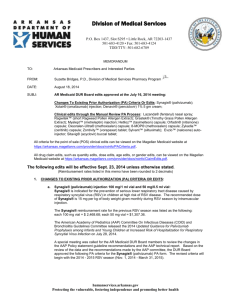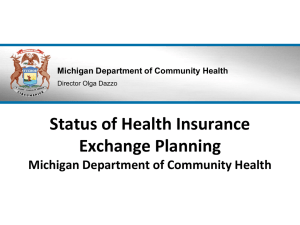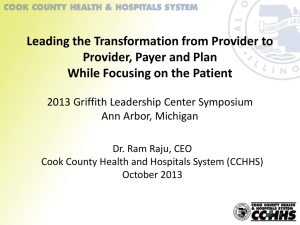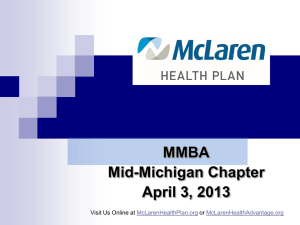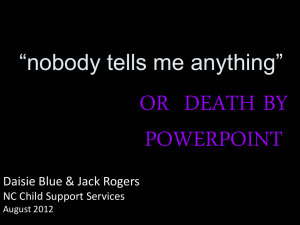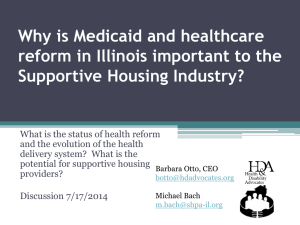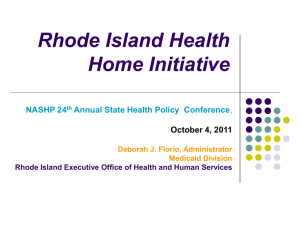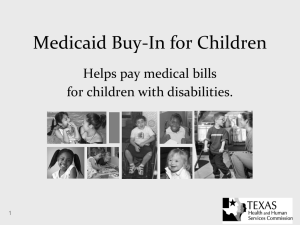Division of Medical Services
advertisement
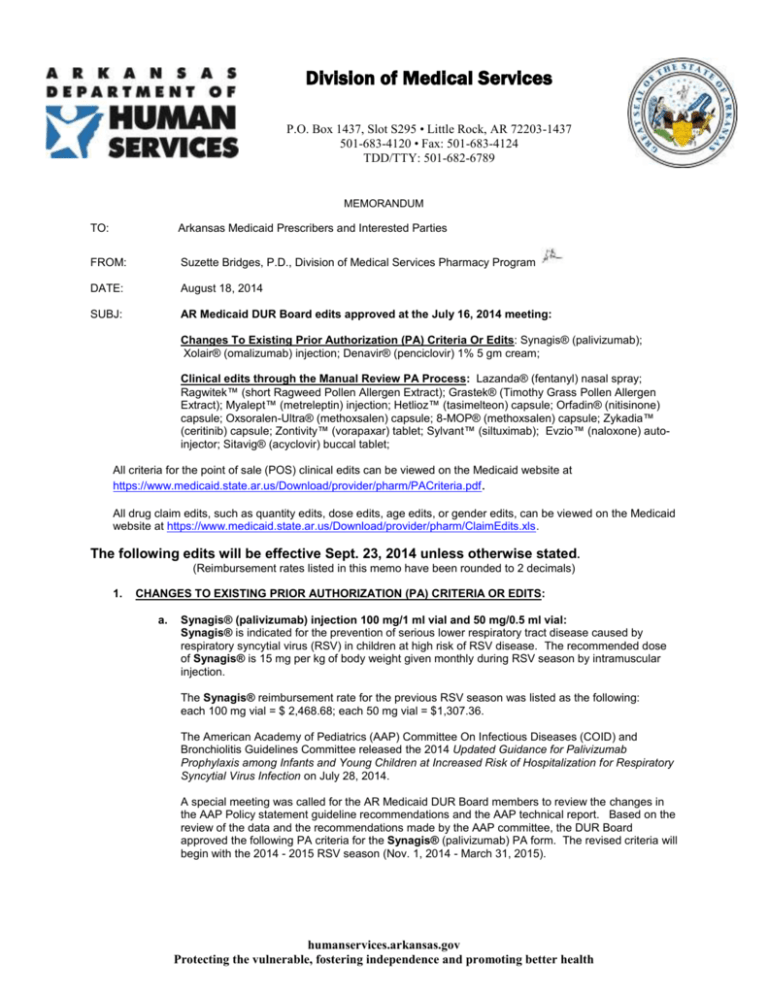
Division of Medical Services P.O. Box 1437, Slot S295 • Little Rock, AR 72203-1437 501-683-4120 • Fax: 501-683-4124 TDD/TTY: 501-682-6789 MEMORANDUM TO: Arkansas Medicaid Prescribers and Interested Parties FROM: Suzette Bridges, P.D., Division of Medical Services Pharmacy Program DATE: August 18, 2014 SUBJ: AR Medicaid DUR Board edits approved at the July 16, 2014 meeting: Changes To Existing Prior Authorization (PA) Criteria Or Edits: Synagis® (palivizumab); Xolair® (omalizumab) injection; Denavir® (penciclovir) 1% 5 gm cream; Clinical edits through the Manual Review PA Process: Lazanda® (fentanyl) nasal spray; Ragwitek™ (short Ragweed Pollen Allergen Extract); Grastek® (Timothy Grass Pollen Allergen Extract); Myalept™ (metreleptin) injection; Hetlioz™ (tasimelteon) capsule; Orfadin® (nitisinone) capsule; Oxsoralen-Ultra® (methoxsalen) capsule; 8-MOP® (methoxsalen) capsule; Zykadia™ (ceritinib) capsule; Zontivity™ (vorapaxar) tablet; Sylvant™ (siltuximab); Evzio™ (naloxone) autoinjector; Sitavig® (acyclovir) buccal tablet; All criteria for the point of sale (POS) clinical edits can be viewed on the Medicaid website at https://www.medicaid.state.ar.us/Download/provider/pharm/PACriteria.pdf . All drug claim edits, such as quantity edits, dose edits, age edits, or gender edits, can be viewed on the Medicaid website at https://www.medicaid.state.ar.us/Download/provider/pharm/ClaimEdits.xls. The following edits will be effective Sept. 23, 2014 unless otherwise stated. (Reimbursement rates listed in this memo have been rounded to 2 decimals) 1. CHANGES TO EXISTING PRIOR AUTHORIZATION (PA) CRITERIA OR EDITS: a. Synagis® (palivizumab) injection 100 mg/1 ml vial and 50 mg/0.5 ml vial: Synagis® is indicated for the prevention of serious lower respiratory tract disease caused by respiratory syncytial virus (RSV) in children at high risk of RSV disease. The recommended dose of Synagis® is 15 mg per kg of body weight given monthly during RSV season by intramuscular injection. The Synagis® reimbursement rate for the previous RSV season was listed as the following: each 100 mg vial = $ 2,468.68; each 50 mg vial = $1,307.36. The American Academy of Pediatrics (AAP) Committee On Infectious Diseases (COID) and Bronchiolitis Guidelines Committee released the 2014 Updated Guidance for Palivizumab Prophylaxis among Infants and Young Children at Increased Risk of Hospitalization for Respiratory Syncytial Virus Infection on July 28, 2014. A special meeting was called for the AR Medicaid DUR Board members to review the changes in the AAP Policy statement guideline recommendations and the AAP technical report. Based on the review of the data and the recommendations made by the AAP committee, the DUR Board approved the following PA criteria for the Synagis® (palivizumab) PA form. The revised criteria will begin with the 2014 - 2015 RSV season (Nov. 1, 2014 - March 31, 2015). humanservices.arkansas.gov Protecting the vulnerable, fostering independence and promoting better health Chronic lung disease of prematurity (CLD) AND < 2 years of age at start of RSV season. CLD of prematurity is defined as gestational age < 32 weeks, 0 days and a requirement for > 21% oxygen for at least the first 28 days after birth. A second season of palivizumab prophylaxis is recommended only for infants with CLD of prematurity as defined above and who continue to require supplemental oxygen, chronic systemic corticosteroid therapy, diuretic therapy, or bronchodilator therapy during the 6 month period before the start of the second RSV season. Former premature (≤ 28 weeks, 6 days estimated gestational age (EGA)) AND < 12 months of age at the start of RSV season. For infants born during the RSV season, fewer than 5 monthly doses will be needed. Infants ≤ 12 months of age at start of RSV season with hemodynamically significant congenital heart disease (CHD). Children that meet these criteria will be: a) infants with acyanotic heart disease who are receiving medication to control congestive heart failure and will require cardiac surgical procedures and b) infants with moderate to severe pulmonary hypertension. Infants with cyanotic heart defects in the first year of life will be reviewed on a case by case basis. Infants < 12 months of age at start of RSV season with neuromuscular disease or congenital anomaly that impairs the ability to clear secretions from the upper airway because of ineffective cough Severe immunocompromised AND patient is < 2 years of age at the start of RSV season. The monthly PA process established several years ago for requesting a PA for Synagis® (palivizumab) has not changed. The revised Synagis® (palivizumab) prior approval (PA) form for the 2014 - 2015 RSV season reflecting the above changes will be posted on the Arkansas Medicaid website on October 1, 2014, and will be implemented beginning November 1, 2014. b. Xolair® (omalizumab) injection 150 mg vial: Xolair® is an anti-IgE antibody that recently received FDA approval for the added indication of Chronic Idiopathic Urticarial (CIU) in adults and adolescents (12 years of age and above) who remain symptomatic despite H1-antihistamine treatment. Xolair® 150 or 300 mg is administered by subcutaneous injection every 4 weeks. Dosing of Xolair® in CIU patients is not dependent on serum IgE (free or total) level or body weight. The appropriate duration of therapy for CIU has not been evaluated. Periodically reassess the need for continued therapy. The reimbursement rate for Xolair® is $833.95 per 150 mg vial. Manual Review PA will be required for all requests for Xolair® injection and will be reviewed on a case-by-case basis. The manual review PA criteria for CIU for beneficiaries age 12 years and older will be based on documentation of CIU diagnosis AND the baseline Uticaria Activity Score-7 (UAS7) must be greater than 16, AND The IgE level must be above the normal range for the testing lab, AND Must try a non-sedating H1-antihistamine (nsAH) for a minimum of 2 weeks, AND Must try nsAH at 4 times the normal daily dose for a minimum of 4 weeks, AND Must try an alternative nsAH at 4 times the normal daily dose for a minimum of 4 weeks, AND Must add a Leukotriene receptor antagonist to the nsAH for a minimum of 4 weeks, AND Must add cyclosporine to the above treatment dosed at 4 mg/kg (based on ideal body weight) for a minimum of 8 weeks. HP Prescription Drug Help Desk at 1-800-707-3854 or at 1-501-374-6609, extension 500 for information. c. Denavir® (penciclovir) 1% 5 gm cream: Denavir® cream is indicated for the treatment of recurrent herpes labialis (cold sores) in adults and children 12 years of age and older. Denavir® should be applied every 2 hours during waking hours for a period of 4 days. Treatment should be started as early as possible (i.e., during the prodrome or when lesions appear). The reimbursement rate for Denavir® cream is $101.58 per gram, or $507.90 per 5 gm tube. The 1.5 gram tube seems to be unavailable in the marketplace at this time. The prior authorization for Denavir® 5 gm tube has been changed from point-of-sale approval criteria to manual Review PA for all requests for Denavir® cream and will be reviewed on a caseby-case basis. HP Prescription Drug Help Desk at 1-800-707-3854 or at 1-501-374-6609, extension 500 for information. 2. CLINICAL EDITS THROUGH MANUAL REVIEW PRIOR APPROVAL (PA) PROCESS: a. Lazanda® (fentanyl) 100 mcg and 400 mcg Nasal Spray: Lazanda® is an opioid agonist indicated for the management of breakthrough pain in cancer patients 18 years of age and older who are already receiving and who are tolerant to opioid therapy for their underlying persistent cancer pain. Patients considered opioid tolerant are those who are taking at least: 60 mg of oral morphine/day, 25 mcg of transdermal fentanyl/hour, 30 mg oral oxycodone/day, 8 mg oral hydromorphone/day, 25 mg oral oxymorphone/day, or an equianalgesic dose of another opioid for a week or longer. Patients must remain on around-the-clock opioids when taking Lazanda®. Initial dose of Lazanda® for all patients is 100 mcg. Individually titrate to an effective dose, from 100 mcg to 200 mcg to 400 mcg, and up to a maximum of 800 mcg, that provides adequate analgesia with tolerable side effects. Dose is a single spray into one nostril or a single spray into each nostril (2 sprays). The reimbursement rate of the Lazanda® 100 mcg nasal spray is $371.52 per bottle (contains 8 sprays of 100 mcg per spray). The reimbursement rate of the 400 mcg nasal spray is $468.53 per bottle (contains 8 sprays of 400 mcg per spray). Manual Review PA will be required for all requests for Lazanda® and will be reviewed on a caseby-case basis. HP Prescription Drug Help Desk at 1-800-707-3854 or at 1-501-374-6609, extension 500 for information. b. Oral SL tablets of Allergen Extracts, Ragwitek™ (short Ragweed Pollen Allergen Extract) and Grastek® (Timothy Grass Pollen Allergen Extract): Ragwitek™: Ragwitek™ is an allergen extract indicated as immunotherapy for the treatment of short ragweed pollen-induced allergic rhinitis, with or without conjunctivitis, confirmed by positive skin test or in vitro testing for pollen-specific IgE antibodies for short ragweed pollen. Ragwitek™ is approved for use in adults 18 through 65 years of age. Ragwitek™ is not indicated for the immediate relief of allergic symptoms. Ragwitek™ has the following black box warning: WARNING: SEVERE ALLERGIC REACTIONS Ragwitek™ can cause life-threatening allergic reactions such as anaphylaxis and severe laryngopharyngeal restriction. Do not administer Ragwitek™ to patients with severe, unstable or uncontrolled asthma. Observe patients in the office for at least 30 minutes following the initial dose. Prescribe auto-injectable epinephrine, instruct and train patients on its appropriate use, and instruct patients to seek immediate medical care upon its use. Ragwitek™ may not be suitable for patients with certain underlying medical conditions that may reduce their ability to survive a serious allergic reaction. Ragwitek™ may not be suitable for patients who may be unresponsive to epinephrine or inhaled bronchodilators, such as those taking beta-blockers. Administer the first dose of Ragwitek™ in a healthcare setting under the supervision of a physician with experience in the diagnosis and treatment of allergic diseases. After receiving the first dose of Ragwitek™, observe the patient for at least 30 minutes to monitor for signs or symptoms of a severe systemic or a severe local allergic reaction. If the patient tolerates the first dose, the patient may take subsequent doses at home. Grastek®: Grastek® is an allergen extract indicated as immunotherapy for the treatment of grass pollen-induced allergic rhinitis with or without conjunctivitis confirmed by positive skin test or in vitro testing for pollen-specific IgE antibodies for Timothy grass or cross-reactive grass pollens. Grastek® is approved for use in persons 5 through 65 years of age. Grastek® is not indicated for the immediate relief of allergic symptoms. Administer the first dose of Grastek® in a healthcare setting under the supervision of a physician with experience in the diagnosis and treatment of allergic diseases. After receiving the first dose of Grastek®, observe the patient for at least 30 minutes to monitor for signs or symptoms of a severe systemic or a severe local allergic reaction. If the patient tolerates the first dose, the patient may take subsequent doses at home. The reimbursement rate is $8.51 per capsule or $263.93 per 31 day supply for either Ragwitek™ or Grastek®. Manual Review PA will be required for all requests for Ragwitek™ or Grastek® and will be reviewed on a case-by-case basis. HP Prescription Drug Help Desk at 1-800-707-3854 or at 1-501-374-6609, extension 500 for information. c. Myalept™ (metreleptin) 11.3 mg (5 mg/ml) vial for injection: Myalept™ (metreleptin) for injection is indicated as an adjunct to diet as replacement therapy to treat the complications of leptin deficiency in patients with congenital or acquired generalized lipodystrophy. Myalept™ should be administered once daily at the same time every day. Limitations of Use The safety and effectiveness of Myalept™ for the treatment of complications of partial lipodystrophy have not been established. The safety and effectiveness of Myalept™ for the treatment of liver disease, including nonalcoholic steatohepatitis (NASH), have not been established. Myalept™ is not indicated for use in patients with HIV-related lipodystrophy. Myalept™ is not indicated for use in patients with metabolic disease, including diabetes mellitus and hypertriglyceridemia, without concurrent evidence of congenital or acquired generalized lipodystrophy. The reimbursement rate for Myalept™ injection is $1,519.10 for each 11.3 mg vial, or $47,092.23 for 31 day supply. Manual Review PA will be required for all requests for Myalept™ and will be reviewed on a caseby-case basis. HP Prescription Drug Help Desk at 1-800-707-3854 or at 1-501-374-6609, extension 500 for information. d. Hetlioz™ (tasimelteon) 20 mg oral capsule: Hetlioz™ is a melatonin receptor agonist indicated for the treatment of Non-24-Hour Sleep-Wake Disorder. The recommended dosage of Hetlioz™ is 20 mg per day taken before bedtime, at the same time every night. Because of individual differences in circadian rhythms, drug effect may not occur for weeks or months. The reimbursement rate is $241.46 each capsule, or $7,485.33 for a 31-day supply. Manual Review PA will be required for all requests for Hetlioz™ and will be reviewed on a case-bycase basis. HP Prescription Drug Help Desk at 1-800-707-3854 or at 1-501-374-6609, extension 500 for information. e. Orfadin® (nitisinone) oral capsules 2 mg, 5 mg, 10 mg: Orfadin® capsules (nitisinone) are indicated as an adjunct to dietary restriction of tyrosine and phenylalanine in the treatment of hereditary tyrosinemia type 1 (HT-1). Orfadin® is a synthetic reversible inhibitor of 4-hydroxyphenylpyruvate dioxygenase indicated for use as an adjunct to dietary restriction of tyrosine and phenylalanine in the treatment of hereditary tyrosinemia type 1 (HT-1). The recommended dose of Orfadin® is 1 to 2 mg/kg divided into two daily doses. The initial dose is 1 mg/kg/day divided for morning and evening administration. Treatment with Orfadin® should be initiated by a physician experienced in the treatment of HT-1. In patients receiving 1.5 mg/kg/day, whose erythrocyte PBG-synthase activity and urine 5-ALA and urine succinylacetone remain elevated and whose plasma succinylacetone is not normalized after three months, the dose may be increased to up a maximum dose of 2 mg/kg/day. The reimbursement rate is as follows: 2 mg capsule = $71.72 each; 5 mg capsule = $179.30 each; 10 mg capsule = $358.59 each. An example of reimbursement monthly amount, @ 1 mg/kg, for a 65 kg person = 65 mg per day, (6 x 10 mg) + 5 mg= ($2,151.54 + $179.29) = $2,330.83 per day, or for 31 days = $72,255.73. Manual Review PA will be required for all requests for Orfadin® and will be reviewed on a case-bycase basis. HP Prescription Drug Help Desk at 1-800-707-3854 or at 1-501-374-6609, extension 500 for information. f. Oxsoralen-Ultra® (methoxsalen) capsule 10 mg and 8-MOP® (methoxsalen) 10 mg capsule: Oxsoralen-Ultra®: The FDA approved indication is a follows: Photochemotherapy (methoxsalen with long wave UVA radiation) is indicated for the symptomatic control of severe, recalcitrant, disabling psoriasis not adequately responsive to other forms of therapy and when the diagnosis has been supported by biopsy. Methoxsalen is intended to be administered only in conjunction with a schedule of controlled doses of long wave ultraviolet radiation. 8-MOP® Capsules: FDA approved indications include the following: Photochemotherapy (methoxsalen with long wave UVA radiation) is indicated for the symptomatic control of severe, recalcitrant, disabling psoriasis not adequately responsive to other forms of therapy and when the diagnosis has been supported by biopsy. Photochemotherapy is intended to be administered only in conjunction with a schedule of controlled doses of long wave ultraviolet radiation. Photochemotherapy (methoxsalen with long wave ultraviolet radiation) is indicated for the repigmentation of idiopathic vitiligo. Photopheresis (methoxsalen with long wave ultraviolet radiation of white blood cells) is indicated for use with the UVAR* System in the palliative treatment of the skin manifestations of cutaneous T-cell lymphoma (CTCL) in persons who have not been responsive to other forms of treatment. While this dosage form of methoxsalen has been approved for use in combination with photopheresis, Oxsoralen Ultra Capsules have not been approved for that use. The dosage guidelines in the medication package inserts are extensive; please see package inserts for dosage information. Reimbursement rates are as follows: 8-MOP® = $30.45 each; Oxsoralen-Ultra® = $79.74 each. Manual Review PA will be required for all requests for methoxsalen oral capsules and will be reviewed on a case-by-case basis. HP Prescription Drug Help Desk at 1-800-707-3854 or at 1-501-374-6609, extension 500 for information. g. Zykadia™ (ceritinib) 150 mg oral capsule: Zykadia™ is a kinase inhibitor indicated for the treatment of patients with anaplastic lymphoma kinase (ALK)-positive metastatic non-small cell lung cancer (NSCLC) who have progressed on or are intolerant to crizotinib. This indication is approved under accelerated approval based on tumor response rate and duration of response. An improvement in survival or disease-related symptoms has not been established. Continued approval for this indication may be contingent upon verification and description of clinical benefit in confirmatory trials. The recommended dose of Zykadia™ is 750 mg orally once daily until disease progression or unacceptable toxicity. Administer Zykadia™ on an empty stomach. (i.e., do not administer within 2 hours of a meal) The reimbursement rate is $92.87 for each 150 mg capsule, or $464.33 per day, or $14,394.12 per 31 day supply. Manual Review PA will be required for all requests for Zykadia™ oral capsules and will be reviewed on a case-by-case basis. HP Prescription Drug Help Desk at 1-800-707-3854 or at 1-501-374-6609, extension 500 for information. h. Zontivity™ (vorapaxar) 2.08 mg Oral Tablet: Zontivity™ is a protease-activated receptor-1 (PAR-1) antagonist indicated for the reduction of thrombotic cardiovascular events in patients with a history of myocardial infarction (MI) or with peripheral arterial disease (PAD). Zontivity™ has been shown to reduce the rate of a combined endpoint of cardiovascular death, MI, stroke, and urgent coronary revascularization. The dose is one tablet of Zontivity™ 2.08 mg orally once daily, with or without food. There is no experience with use of Zontivity™ alone as the only administered antiplatelet agent. Zontivity™ has been studied only as an addition to aspirin and/or clopidogrel. The reimbursement rate of Zontivity™ is $9.20 per tablet, or $285.05 per 31 day supply. Manual Review PA will be required for all requests for Zontivity™ oral tablet and will be reviewed on a case-by-case basis. HP Prescription Drug Help Desk at 1-800-707-3854 or at 1-501-374-6609, extension 500 for information. i. Sylvant™ (siltuximab) vial for injection, 100s mg, 400 mg: Sylvant™ is indicated for the treatment of patients with multicentric Castleman's disease (MCD) who are human immunodeficiency virus (HIV) negative and human herpesvirus-8 (HHV-8) negative. Limitation of Use Sylvant™ was not studied in patients with MCD who are HIV positive or HHV-8 positive because Sylvant™ did not bind to virally produced IL-6 in a nonclinical study. The dose of Sylvant™ is 11 mg/kg given over 1 hour as an intravenous infusion administered every 3 weeks until treatment failure. Perform hematology laboratory tests prior to each dose of Sylvant™ therapy for the first 12 months and every 3 dosing cycles thereafter. If treatment criteria for the laboratory parameters outlined in Table 1 of the package insert are not met, consider delaying treatment with Sylvant™. Package insert states do not reduce dose. Do not administer Sylvant™ to patients with severe infections until the infection resolves. Discontinue Sylvant™ in patients with severe infusion related reactions, anaphylaxis, severe allergic reactions, or cytokine release syndromes. Do not reinstitute treatment. The instructions for preparation and administration are quite extensive and the reconstituted product should be kept for no more than two hours prior to addition into the infusion bag. Please review complete instructions in the package insert. The reimbursement rate is as follows: 100 mg vial = $ 859.66; 400 mg vial = $ 3,438.62; example of cost per infusion for 80 kg patient = 880 mg = $7,736.90 every 3 weeks. Manual Review PA will be required for all requests for Sylvant™ vials for injection and will be reviewed on a case-by-case basis. HP Prescription Drug Help Desk at 1-800-707-3854 or at 1-501-374-6609, extension 500 for information. j. Evzio™ (naloxone) 0.4 mg auto-injector: Evzio™ is an opioid antagonist indicated for the emergency treatment of known or suspected opioid overdose, as manifested by respiratory and/or central nervous system depression. Evzio™ is intended for immediate administration as emergency therapy in settings where opioids may be present. Evzio™ is not a substitute for emergency medical care. The reimbursement for Evzio™ auto-injector is $296.70 each. Other Naloxone injections are available through pharmacy program and the reimbursement rates are as follows: Naloxone 0.4mg/ml syringe = $14.82 each Naloxone 2mg/2 ml syringe = $16.27 each Naloxone 0.4 mg/ml vial, 10 ml vial = $13.16 per ml, or $131.57 for the 10 ml vial Naloxone 0.4 mg/ml vial, 1 ml vial = $21.11 each Manual Review PA will be required for all requests for Evzio™ auto-injector and for the naloxone 0.4 mg/ml 10 ml vial; requests will be reviewed on a case-by-case basis. The naloxone 0.4 mg/1 ml syringe, the naloxone 0.4 mg/1 ml vial, and the naloxone 2 mg/2 ml syringe are available without prior authorization. HP Prescription Drug Help Desk at 1-800-707-3854 or at 1-501-374-6609, extension 500 for information. k. Sitavig® (acyclovir) tablet, orally disintegrating, delayed release: Sitavig® is indicated for the treatment of recurrent herpes labialis (cold sores) in immunocompetent adults. The dose is one Sitavig® 50 mg buccal tablet applied as a single dose to the upper gum region (canine fossa). The reimbursement rate is $161.25 per each tablet. The product is packaged as 2 tablets and the inner NDC is not recognized in the Medicaid system. The reimbursement rate for the 2 tablet package is $322.50. Manual Review PA will be required for all requests for Sitavig® and will be reviewed on a case-bycase basis. HP Prescription Drug Help Desk at 1-800-707-3854 or at 1-501-374-6609, extension 500 for information. FRIENDLY REMINDERS: ICD-10 implementation deadline has been postponed by CMS to Oct. 1, 2015. 1. INCARCERATED PERSONS: The Medicaid Pharmacy Program is prohibited by federal regulations, 42 C.F.R. §435.1009 and §435.1010, from paying for drug claims for Medicaid beneficiaries who, on the date the prescription is filled, are incarcerated in a correctional or holding facility for individuals who are prisoners, including juvenile correctional facilities, are detained pending disposition of charges, or are held under court order as material witnesses. If medications are requested for incarcerated Medicaid beneficiaries, the medications cannot be billed to Medicaid Pharmacy Program and are subject to recoupment. Pharmacists should contact the correctional facility regarding the facility’s reimbursement procedures for the requested medications. 2. ANTIPSYCHOTIC AGENTS CRITERIA FOR CHILDREN < 18 YOA have an ongoing requirement for labs for metabolic monitoring. When any provider sends a patient who is less than 18 years of age for the metabolic labs that are required for the antipsychotic agents, the provider must include the PCP’s name and Medicaid ID number on the lab order request form. It does not have to be the PCP ordering the labs. Please refer to the Physician/Independent Lab/CRNA/Radiation Therapy Center Provider Manual, Section II, 245.000 B. 3. CHANGES TO INFORMED CONSENT FORM FOR ANTIPSYCHOTIC AGENT PA FOR CHILDREN < 18 YOA: For those providers who have not had their own version of the Informed Consent form approved for use with Medicaid PA requests and who use the Medicaid Informed Consent form for antipsychotic agents, the form has been updated (v010914) and is posted on the Medicaid website. As the form is updated and posted on the Medicaid website, providers are required to use the most current form. Effective, Dec. 10, 2013, the old versions will no longer be accepted. 4. FOR PDL REQUESTS AND FOR REQUESTS FOR ANTIPSYCHOTIC DRUGS: Providers requesting a Prior Authorization (PA) for a drug on the PDL or requesting a Prior Authorization (PA) for an antipsychotic medication should contact the Evidence-based Prescription Drug Program (EBRx) PA Call Center Toll Free 1-866-250-2518 or Local 501-526-4200 or Fax 501-526-4188. Please include any supporting documentation for the request with the fax, and include beneficiary ID number, beneficiary name, and Medicaid Provider ID with your request. 5. FOR NON-PDL DRUGS AND FOR NON-ANTIPYSCHOTIC DRUG REQUESTS: Providers requesting a Prior Authorization (PA) should call the HP Prescription Drug Help Desk at 1-800-707-3854 or at 1-501-374-6609, extension 500. For Prior Authorization (PA) requests requiring manual review, you may fax your request to the HP Help Desk Fax at 501-372-2971 or to the state office Fax at 501-683-4124. Please include any supporting documentation for the request with the fax, and include beneficiary ID number, beneficiary name, and Medicaid provider ID with your request. An approval, denial, or request for additional information will be returned by the close of business the following business day. 6. THE AR MEDICAID PHARMACY PROGRAM REIMBURSES FOR COVERED OUTPATIENT DRUGS FOR MEDICAID BENEFICIARIES WITH PRESCRIPTION DRUG BENEFITS. Only medications prescribed to that beneficiary can be billed using the beneficiary’s Medicaid ID. Sanctions may be imposed against a provider for engaging in conduct that defrauds or abuses the Medicaid program. This could include billing a child’s medication to a parent’s Medicaid ID number and vice-versa. 7. EMERGENCY OVERRIDE: In an emergency, for those drugs for which a five-day supply can be dispensed, a pharmacy may dispense up to a five-day supply of a drug that requires clinical criteria or is non-preferred. This provision applies only in an emergency situation and when the HP Enterprise Services Prescription Drug Help Desk is unavailable, Evidence Based Prescription Drug Program Help Desk is unavailable, and the pharmacist is not able to contact the prescribing physician. To file a claim using this emergency provision, the pharmacy provider will submit a “03” in the Level of Service (418-DI) field. Frequency of the emergency override is limited to once per year per class of drugs for non-LTC beneficiaries and once per 60 days per class for LTC beneficiaries. For any Schedule-II controlled substance filled using the Medicaid Emergency Override process, please refer to the Arkansas State Board of Pharmacy regulations regarding partial fill of a Schedule-II controlled substance. 8. ANY REIMBURSEMENT RATES STATED IN THIS MEMORANDUM (OR ANY PREVIOUS MEMORANDUMS) ARE FOR REFERENCE PURPOSES ONLY AND SUBJECT TO CHANGE, and are in no way a contractual obligation by Arkansas Medicaid. Current Generic Upper Limits (GUL) or Maximum Allowable Cost (MAC) that have been issued at the State and or Federal level, along with State issued Capped Upper Limits (CAP), can be found on the Arkansas Medicaid website: www.medicaid.state.ar.us. EAC is Estimated Acquisition Cost and, in the absence of a federal or state GUL or MAC, this reimbursement methodology is calculated using AWP-14% for brand agents and AWP-20% for generic agents. 9. MANUAL REVIEW PA REQUESTS AND EXCEPTIONS TO ESTABLISHED CRITERIA ARE REVIEWED ON A CASE-BY-CASE BASIS. Prescribers must provide a letter explaining the medical necessity of the request along with written documentation, e.g., chart notes, to substantiate the medical necessity of the request. 10. THE ANTENATAL & NEONATAL GUIDELINES, EDUCATION AND LEARNING SYSTEM (ANGELS) PROGRAM HAS DEVELOPED A PEDIATRIC GUIDELINE FOR STRONG-WILLED PRESCHOOLERS (YOUNG CHILDREN’S STRONG-WILLED /NONCOMPLIANT/ DISRUPTIVE BEHAVIOR) THAT HAS BEEN PEER REVIEWED AND FINALIZED. The guideline covers the problems, etiology, and prevalence of children who have disruptive behavior problems or Oppositional Defiant Disorder (ODD). The guideline indicates that early intervention is important to effectively address disruptive behavior problems and prevent escalation of the problem into the school-aged years. The guideline points out that no medications are indicated for the treatment of disruptive behavior disorders. The most thoroughly researched and validated type of interventions to treat young children’s disruptive behavior are often collectively referred to as Parent Management Training (PMT), Behavioral Parent Training (BPT), or sometimes just as Parent Training (PT). PMT approaches typically involve working with both the parent and child, teaching parents specific parenting skills to improve the parent-child relationship, improve compliance, and decrease disruptive behavior. The complete guideline is available at this link: http://www.uams.edu/cdh1/peds_guidelines.aspx? Providers are asked to create a user name and password to log in to view any of the available pediatric guidelines on the website. This advance notice is to provide you the opportunity to contact, counsel, and change patients’ prescriptions. If you need this material in an alternative format, such as large print, please contact the Program Development and Quality Assurance Unit at 501-320-6429. If you have questions regarding this transmittal, or you need this material in an alternative format, such as large print, please contact the HP ENTERPRISE SERVICES (FORMERLY CALLED EDS) Provider Assistance Center at 1-800-457-4454 (Toll-Free) within Arkansas or locally and out-of-state at (501) 376-2211. Arkansas Medicaid provider manuals (including update transmittals), official notices and remittance advice (RA) messages are available for downloading from the Arkansas Medicaid website: www.medicaid.state.ar.us/. ONGOING REMINDER FROM PREVIOUS COMMUNICATIONS: Prescribers are required to monitor children < 18 years of age for metabolic changes every 6 months on an outpatient basis when the child is receiving any antipsychotic agent. Acceptable CPT codes for the metabolic monitoring criteria are listed below [reminder, criteria requires CPT codes monitoring for both glucose (group-1) and lipids (group-2)]: Group-1 (glucose codes): Criteria require one of the following CPT codes that contain glucose monitoring in the previous 9 months from claim date of in-process claim: 83036 (HbA1c), OR 80050 (General Health Panel), OR 80069 (Renal Function Panel), OR 80047 (Basic Metabolic Panel), OR 80048 (Basic Metabolic Panel), OR 80053 (Comprehensive metabolic panel ), OR 82962 (Glucose, blood by glucose monitoring device(s) cleared by the FDA specifically for home use) OR 82948 (Glucose; blood, reagent strip ) OR 82947 (Glucose; quantitative, blood), AND, criteria require one of the following lipid panel tests or all of the individual lipid test monitoring codes in previous 9 months from claim date of the in-process claim: Group-2 (lipid codes) 80061 (Lipid panel ), OR 83701 (High resolution fractionation and quantitation of lipoproteins panel), OR 82465 (Cholesterol, serum or whole blood, total ), AND 83718 (HDL cholesterol ), AND 84478 (Triglycerides ), AND 83721 (LDL Cholesterol) Please Note: When any provider sends a patient who is less than 18 years of age for the metabolic labs required for the antipsychotic agents, the provider must include the PCP’s name and Medicaid ID number in the lab order request form. It does not have to be the PCP ordering the labs. Please refer to the Physician/Independent Lab/CRNA/Radiation Therapy Center Provider Manual, section II, 245.000 B for detailed information pasted below: B. The referring physician’s individual provider identification number must also accompany the order. 1. If the client’s PCP referred the client to the physician ordering the tests, the ordering physician must include with the order the PCP’s individual provider identification number, in addition to his or her own individual provider identification number. 2. The reference facility retains the ordering physician’s provider information with the client’s medical record for the medical necessity audit trail. 3. The reference facility enters the PCP’s provider identification number on its claim(s) to certify PCP referral. 4. If the Medicaid client is exempt from PCP Program requirements, the reference facility submits the individual provider identification number of the ordering physician on its Medicaid claim.


